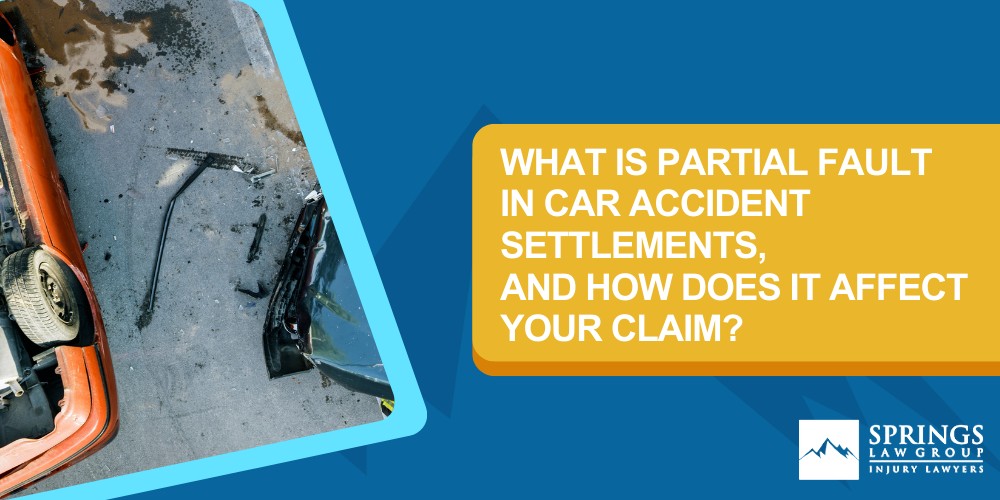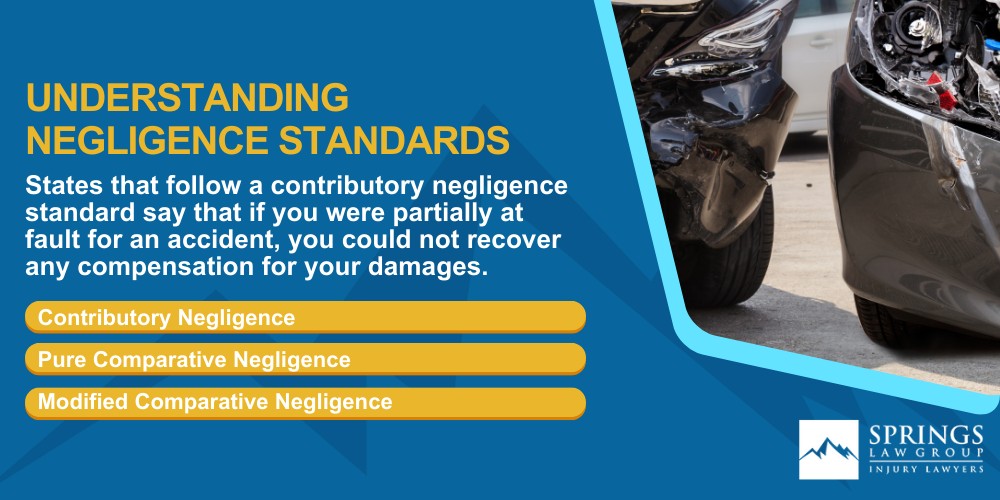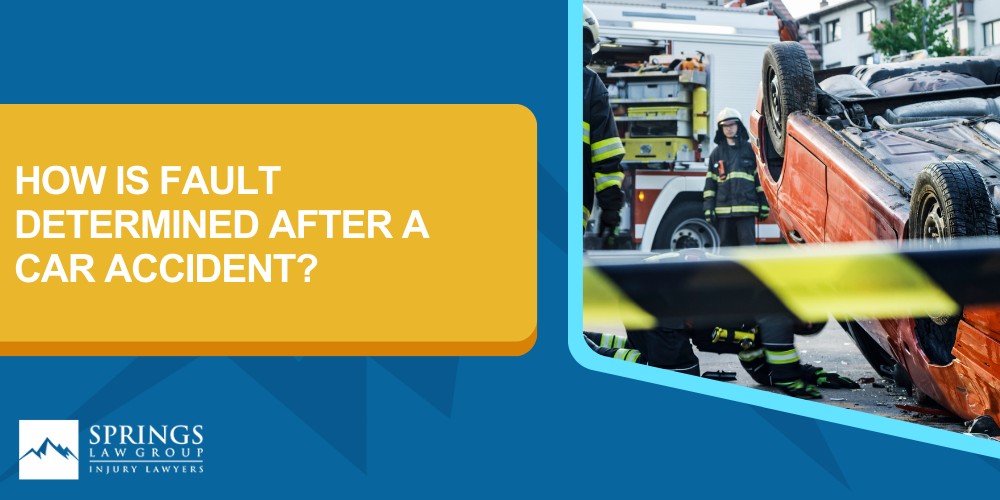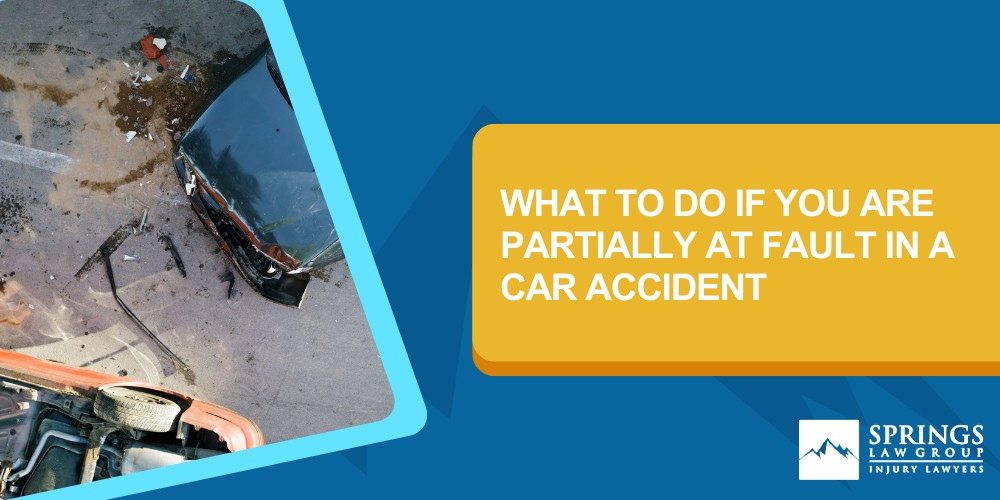What is Partial Fault in Car Accident Settlements, and How Does It Affect Your Claim?

Imagine that you are driving to work one day and running late. There’s an important meeting that you can’t afford to miss, and while most days you try not to speed, you really need to make it in time. As you are speeding, you pass an intersection. The light has just turned from red to green, and you have the right of way. But, right as you are halfway through the intersection, you feel the harsh impact of another car slamming into you. The broadside, or t-bone, collision sends you to the hospital. Your car is wrecked, and you will have hefty medical bills to pay.
What makes the situation worse is that you know you were partially at fault for the accident. Yes, the other vehicle ran a red light, but you were still speeding. So, now you don’t know if you’re entitled to any compensation for your damages. Do you think you’re partially responsible for a car accident near Colorado Springs? If so, continue reading this article to learn what this means and how it can affect your settlement amount.
Understanding Negligence Standards
In a car accident case, you are almost always entitled to financial compensation if the other driver was at fault for the accident. So what happens if you were partially responsible for the wreck? Each state follows different negligence standards, which define how much you can recover from an accident you partly caused. Here are the three most common negligence standards in an auto accident.

Contributory Negligence
States that follow a contributory negligence standard say that if you were partially at fault for an accident, you could not recover any compensation for your damages. Even if you had little involvement in the accident, you could not earn a settlement for your losses.
Pure Comparative Negligence
In pure comparative states, you can recover compensation that is reduced by the percentage of damages for which you were responsible. In other words, your settlement amount is decreased by the percentage of your fault. So, if you were 15% at fault for the accident, you are entitled to compensation for 85% of your damages.
Modified Comparative Negligence
States that follow the modified comparative negligence standard say you can recover partial compensation if you are under a certain percentage of fault. Colorado follows this negligence standard, and its threshold is 50%. This means that if you are 49% or lower at fault for the accident, you are entitled to compensation. Similar to the pure comparative negligence standard, your settlement amount is reduced by the percentage of fault that you caused.
How Is Fault Determined After a Car Accident?
Fault in a car crash can be determined in several ways. For example, the police will respond to the accident scene and file a police report. They will interview both parties and decide who was at fault. Both car insurance companies will likely send an adjuster to investigate the circumstances surrounding the accident. Additionally, if you or the other party admit full or partial fault, that can be used against you in the personal injury case. Whoever is determined to be the at-fault driver will be responsible for covering medical expenses, lost wages, property damage, and other losses related to the auto accident. In most car accident claims, this is paid for using liability insurance.

Another option is to work with a car accident lawyer. They can help you determine liability and will try to negotiate a settlement amount with the insurance company. If you have to go to court for your car accident claim, the judge will determine who was at fault and what percentage each person was responsible for. Most attorneys offer a free case evaluation and can represent you in a personal injury lawsuit.
What to Do if You Are Partially at Fault in a Car Accident

Collecting as much evidence as possible from the incident is essential if you believe you were partially at fault in a car accident. Evidence can help you prove that you were only partially at fault instead of entirely at fault. Take notes, pictures, and videos of what happened. It is also essential to avoid admitting fault to anyone, including the police, the involved parties, or the insurance companies. If you accept fault, you may be fully responsible for the crash. Finally, make sure you contact a personal injury attorney. They could help you earn a fair settlement even if you were partially at fault for the accident.
Do I Need a Car Accident Lawyer if I’m Partially at Fault?

If you are partially at fault for your car accident, you might wonder whether or not you need to hire a personal injury lawyer. While hiring a lawyer is not required, doing so can increase your chance to seek compensation. An attorney can help you determine if you were actually at fault, and they can negotiate a settlement amount with the other driver’s insurance company. While we can’t quote you an average car accident settlement since each case is unique, we can tell you that most car accident settlements recovered by car accident lawyers are typically 3x more than what accident victims recover on their own. This is because our attorneys understand personal injury law, and whether or not you were partially to blame for your accident has no bearing on our ability to fight fiercely for compensation on your behalf. At Springs Law Group, our team of personal injury lawyers is passionate about our client’s success. Contact an attorney today if you’ve been in a car accident in Colorado Springs. Schedule your free consultation.
